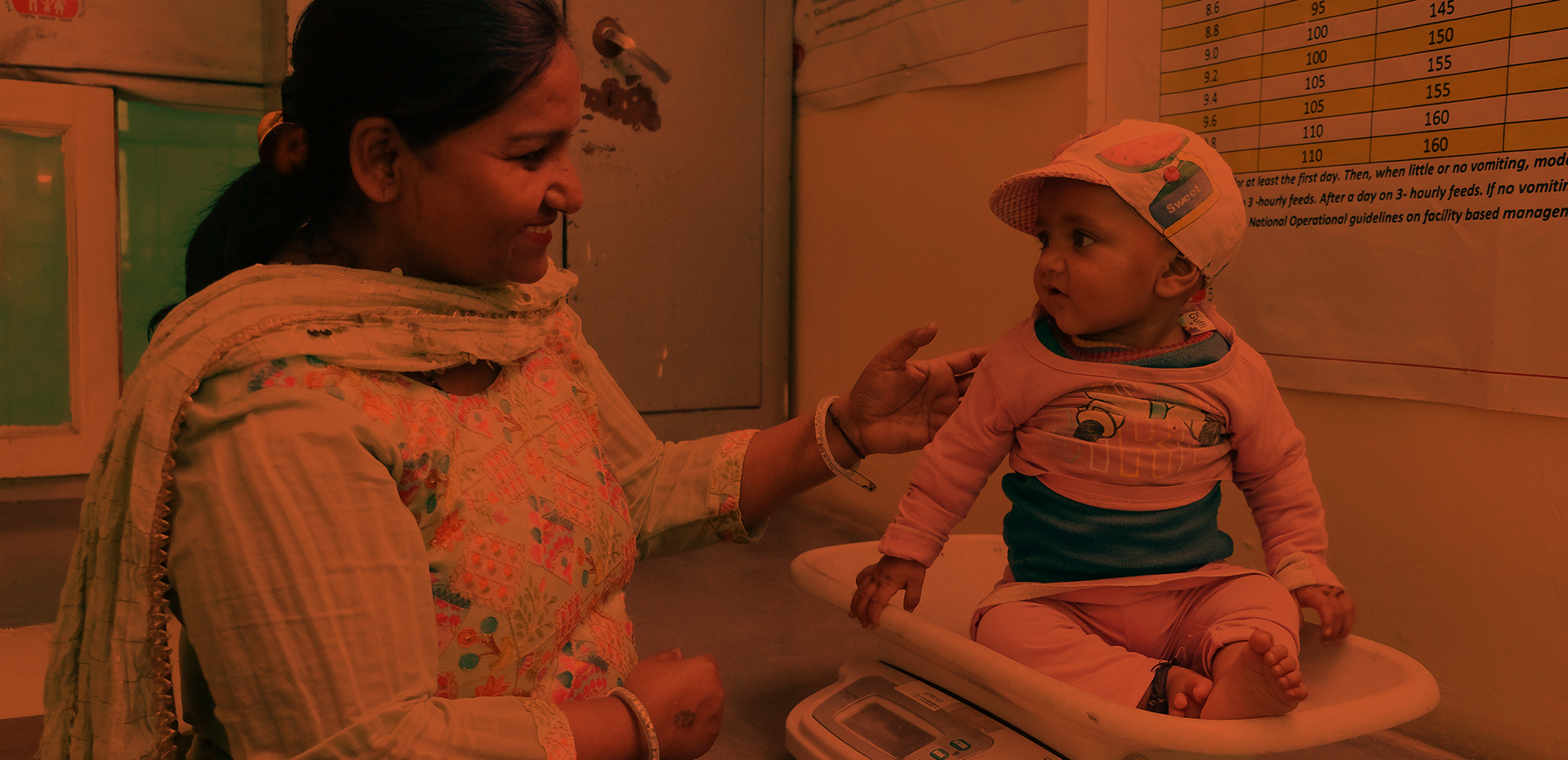
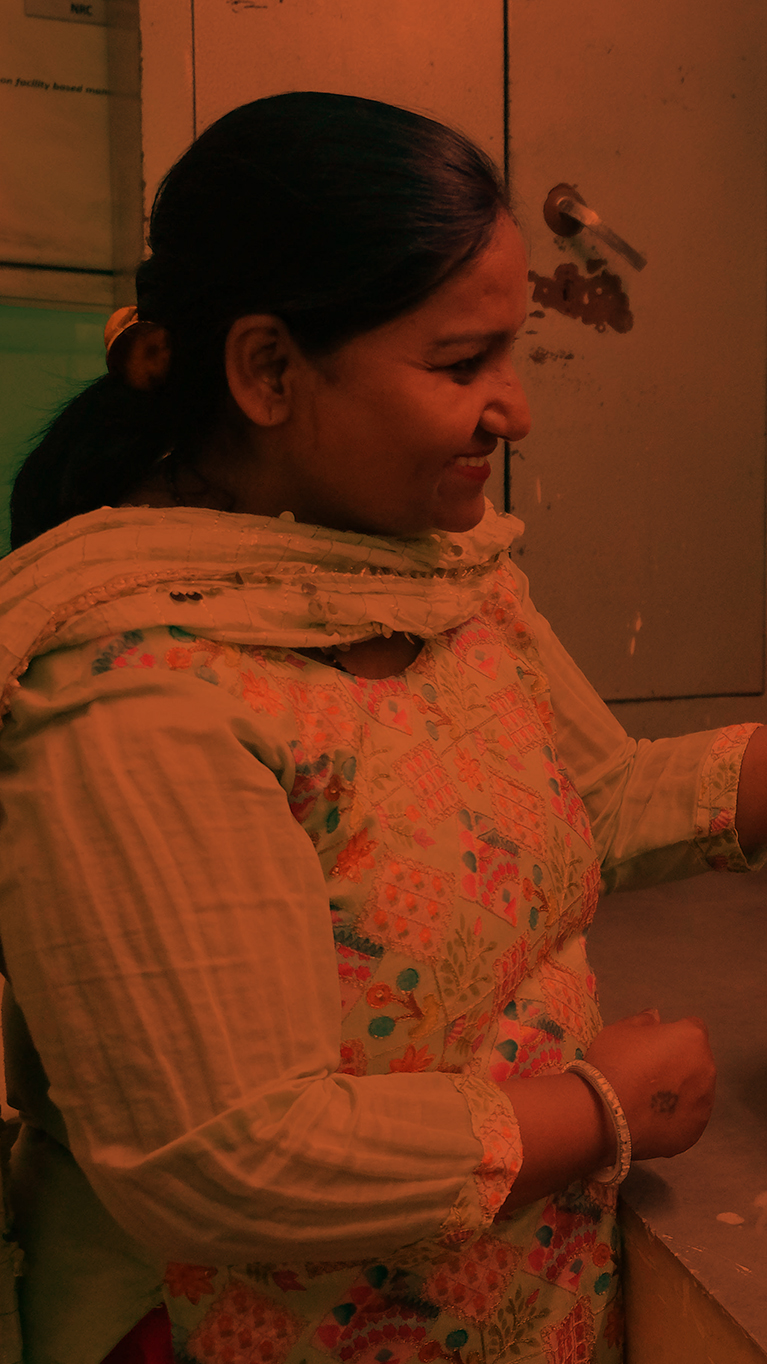


Inadequate access to safe drinking water and proper sanitation facilities further increases the vulnerability of the local population, impacting health and overall quality of life. Agriculture struggles with low productivity and limited resources, while women face barriers to empowerment and income opportunities. Moreover, communities continue to struggle with low income-generating opportunities and limited awareness or access to government welfare schemes, hindering their path to sustainable development.
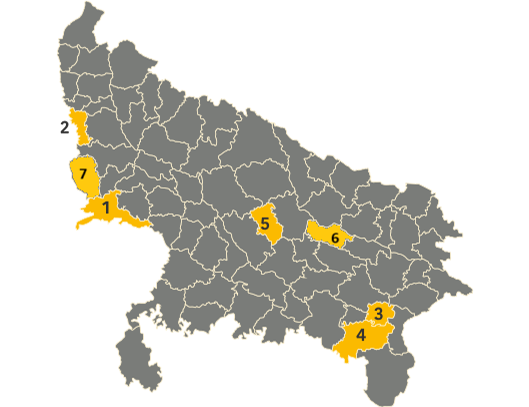
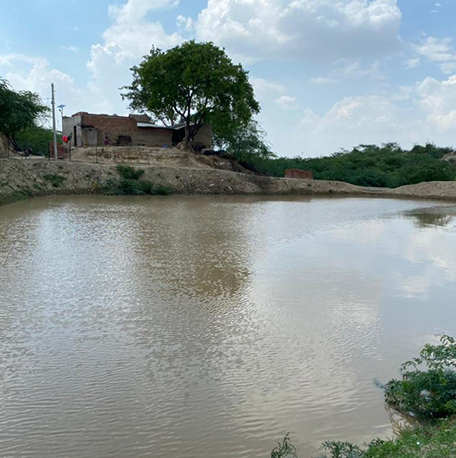
Communities are being empowered to tackle local water issues, via Ambuja Foundation’s water program which includes a focus on drip irrigation. There is a focus preparing each village for water security and on water budgeting. Awareness is being generated on the efficient use of surface and groundwater, whilst educating people on the need for rainwater harvesting for recharge. Additionally, handpumps have been installed in villages to reduce the drudgery of women.
farmers with drip irrigation systems
Hand pumps installed
people engaged in water program
Water Minar
Water Quality Tests conducted
Awareness Campaigns
Check Dam Construction
Traditional Ponds Renovated
Soak Pits and Hand pump Platforms Constructed
Water Purification System Installed
Village-Level Institutions Formed & Strengthened
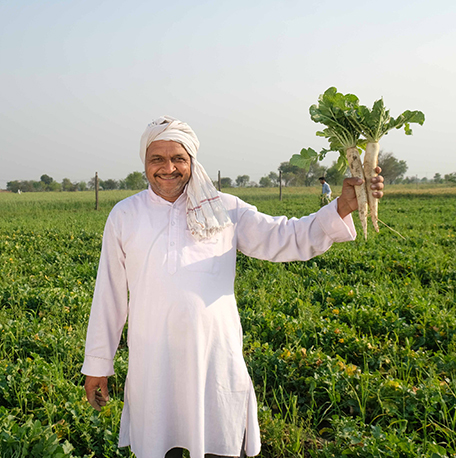
Ambuja Foundation has been actively working to enhance the income of marginal farmers by promoting sustainable agricultural practices. Over 16 farmers have adopted banana cultivation as a high-value crop, while 186 farmers have been sensitized on the benefits of green manuring to improve soil health and productivity. The Foundation continues to build farmers’ capacities through regular collaboration with local Krishi Vigyan Kendras (KVKs) and the Department of Agriculture. In addition, Ambuja Foundation is facilitating access to various government schemes and providing training on modern and traditional farming techniques. The ongoing promotion of millets and natural farming practices further reflects the Foundation’s commitment to eco-friendly, climate-resilient agriculture and holistic rural development.
solar fencing machine installated
Solar Street Light
using safety equipment
Educated on Horticulture
introduced with New Farm Technologies
Farmer Clubs
Farmer Machinery banks
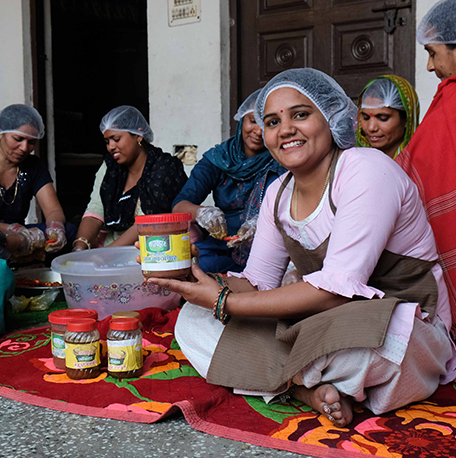
Ambuja Foundation’s Women empowerment program in Uttar Pradesh, empowers women through financial inclusion and links them with income generation opportunities. By working with SHGs, the program aims to boost household incomes and also contribute towards development of the area.
SHGs
Opened Bank Accounts
Common Facility Centers (CFCs)
women associated with community investment fund
women linked with Government Schemes
women in Livelihood promotion
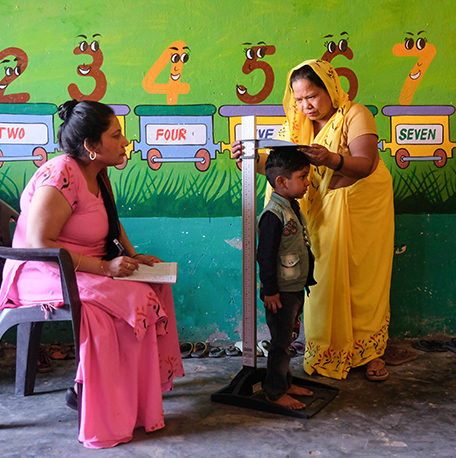
Ambuja Foundation’s integrated health program incorporates preventive and promotive aspects of health with a strong focus on malnutrition, menstrual hygiene and WASH, among women and children. Ambuja Foundation supports Anganwadi centres for better nutrition and health status of children, harnessing the help of field health volunteers. Ambuja Foundation has installed 17 sanitary napkin vending machines and 10 incinerators in AWCs, schools and PHCs for promoting menstrual hygiene and management.
NCD (HB/Sugar & Hypertension) Screening Camps
Beneficiaries reached
children screened
children referred to Nutrition Resource Center
Awareness sessions on NCD
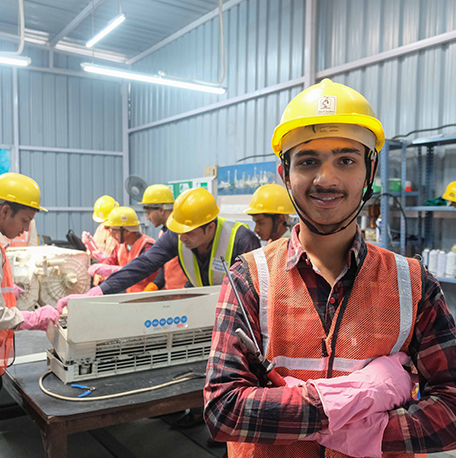
There are 4 Skill & Entrepreneurship Development Institutes (SEDIs) currently operational in Gautam Budha Nagar (Dadri, Greater Noida), Lucknow, Varanasi districts. The objective of the program is to make youth employable through skill-based training and provide them with gainful employment or self-employment. Through these SEDIs we are training around 2000 youths every year, in different trades like Assistant Electrician, General Duty Assistant, AC Repair Technician, Sewing Machine Operator, Assistant Beauty Therapist, Microfinance Executive & Future Skills.
Youth Trained
Placed
Placement rate
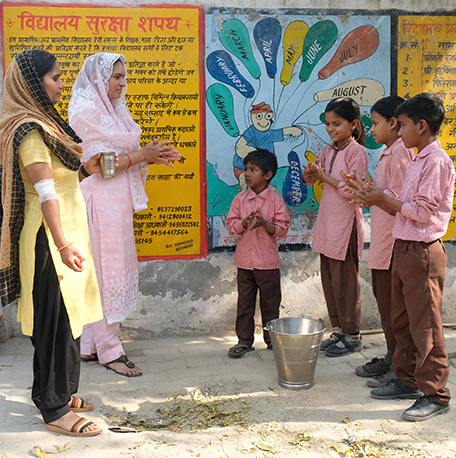
In Uttar Pradesh, Ambuja Foundation is supporting 112 Government Schools across the districts of Agra, Varanasi, Mirzapur, Gautam Buddha Nagar and Ayodhya to enhance the overall learning environment for children. The initiative focuses on developing smart classrooms equipped with digital learning tools and providing essential infrastructure support, including improved seating arrangements, well-stocked libraries, and better WASH (Water, Sanitation, and Hygiene) facilities. Through this holistic approach, the Foundation aims to create a more engaging, inclusive, and healthy educational experience for students, especially in rural and underserved areas.
students reached on Digital Learning
water filter setup
Libraries setup
Digital Classrooms setup
WASH Facilities setup
Activity Corners setup
Science Labs setup
Individuals trained in Digital Literacy